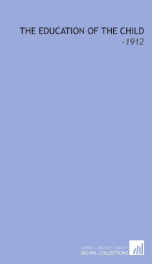Key Ellen

Ellen Karolina Sofia Key (Swedish pronunciation: [kej]; December 11, 1849 – April 25, 1926) was a Swedish feminist writer on many subjects in the fields of family life, ethics and education. Born at Sundsholm mansion, Sweden[1] (Småland), she was an early advocate of a child-centered approach, and a suffragist. Key maintained that motherhood is so crucial to society that the government, rather than their husbands, should support mothers and their children. These ideas regarding state child support influenced social legislation in several countries.[2] Several of Key's writings were translated into English by Mamah Borthwick, during the period of her affair with Frank Lloyd Wright. Among her best-known works published in English: Ellen Key started her career as a writer in the mid-1870s with literary essays. She became known to a large public through the pamphlet On Freedom of Speech and Publishing (1889). Her name and her books then became the topic of lively discussions. The following work focuses on her views on education, personal freedom, and the independent development of the individual. These works include: On education, her earliest article may be Teachers for Infants at Home and in School in Tidskrift för hemmet (1876). Her first more widely read essay, Books versus Coursebooks, was published in the journal Verdandi (1884). Later, in the same journal, she published other articles A Statement on Co-Education(1888) and Murdering the Soul in Schools (1891). Later she published the works Education (1897) and Beauty for All (1899). In 1906 came Popular Education with Special Consideration for the Development of Aesthetic Sense. In the last books Key views aesthetics, as beauty and art, from the aspect of the elevation of humanity.[4] Key grew up in an atmosphere of liberalism, and throughout the 1870s her political beliefs were radically liberal. She was republican-minded, with the idea of freedom holding vast importance for her. As the 1880s advanced, her thinking became even more radical, affecting first her religious beliefs and then her views on life in society in general. This was the outcome of extensive reading. During the latter part of the 1880s and particularly in the 1890s, she began to read socialist literature and turned increasingly towards socialism. Key was raised in a rigid Christian household, but while growing up, she started questioning her views. From 1879 she studied Charles Darwin, Herbert Spencer and T. H. Huxley. In the autumn of that year she met both Huxley and Haeckel, the German biologist and philosopher, in London. The principle of evolution, in which Ellen Key had come to believe, was also to have an influence on her educational views. She is quoted as having said:
do you like this author?
What readers are saying
What do you think? Write your own comment on this book!
write a commentWhat readers are saying
What do you think? Write your own comment on this author!
write a commentBook list

The Education of the Child
Series:
Unknown
Year:
Unknown
Raiting:
4/5
Originally published in 1912. This volume from the Cornell University Library's print collections was scanned on an APT BookScan and converted to JPG 2000 format by Kirtas Technologies. All titles scanned cover to cover and pages may include marks notations and other marginalia present in the original volume.
Show more
add to favoritesadd In favorites
Book list

The Education of the Child
Series:
Unknown
Year:
Unknown
Raiting:
4/5
Originally published in 1912. This volume from the Cornell University Library's print collections was scanned on an APT BookScan and converted to JPG 2000 format by Kirtas Technologies. All titles scanned cover to cover and pages may include marks notations and other marginalia present in the original volume.
Show more
add to favoritesadd In favorites
What readers are saying
What do you think? Write your own comment on this author!
write a commentif you like Key Ellen try:
readers also enjoyed
What readers are saying
What do you think? Write your own comment on this author!
write a commentif you like Key Ellen try:
readers also enjoyed
Do you want to exchange books? It’s EASY!
Get registered and find other users who want to give their favourite books to good hands!


